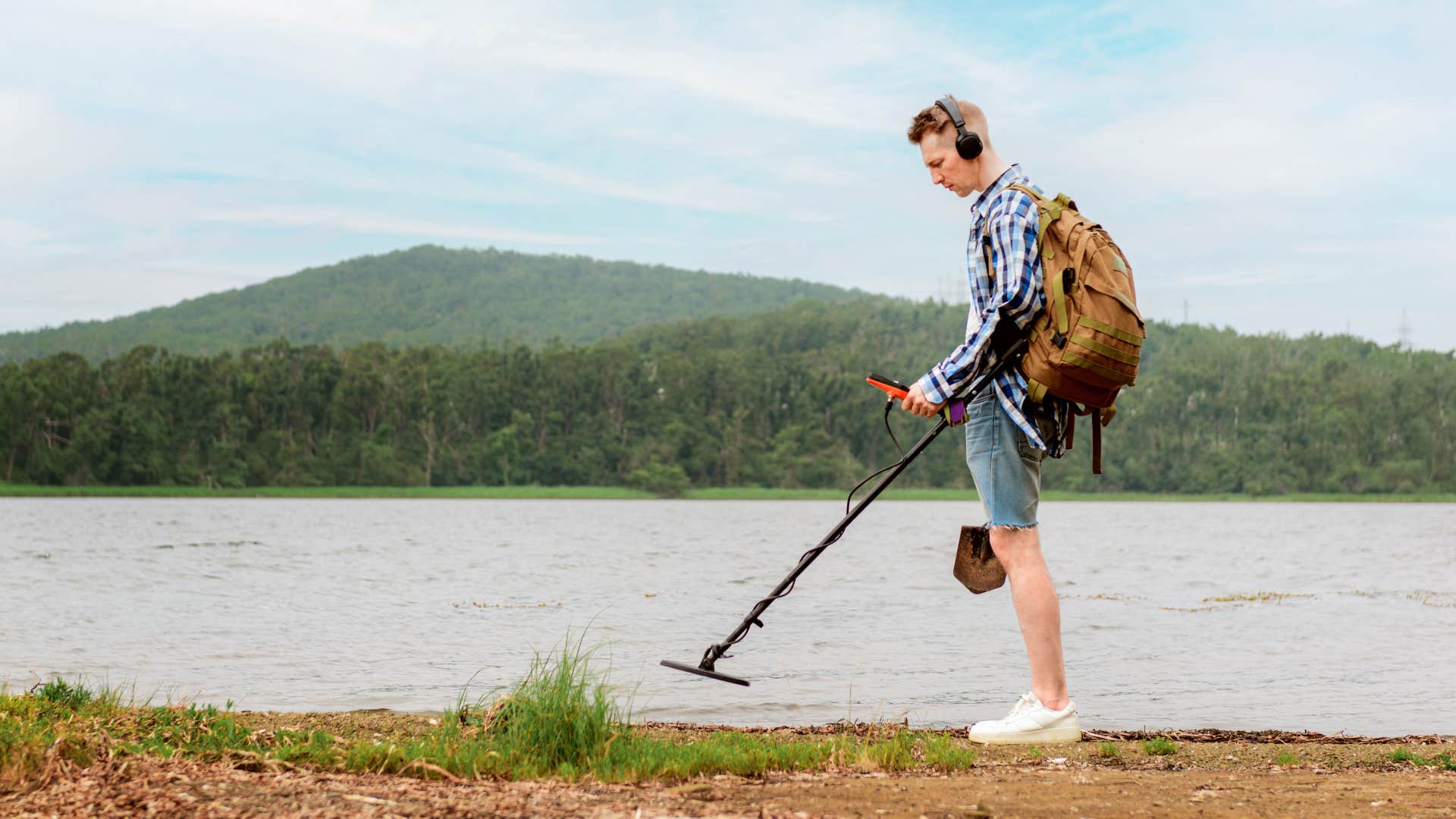7 Cost-Effective Hobbies That Help You Save Money Instead Of Spend It
These hobbies won't break the bank.
 TORWAISTUDIO | Shutterstock
TORWAISTUDIO | Shutterstock Hobbies have been proven to boost your mood and relieve stress. But when your hobby makes your wallet run dry, how stress-free can you truly be? Luckily, not all hobbies require you to drop the big bucks.
In a Reddit post, a user asked for money-saving hobbies, and commenters delivered. These seven hobbies are not just fun and fulfilling, but they can also help you save a few bucks — something we all need in today's economy.
Here are 7 cost-effective hobbies that help you save money instead of spending it:
1. Cycling
 Jacob Lund | Shutterstock.com
Jacob Lund | Shutterstock.com
This particular hobby may not seem cost-effective at first glance due to the upfront cost of equipment; however, with consistency, it will eventually pay for itself.
"Cycling started as an expensive hobby and has become a money-saving hobby for me," one user shared. "It took time to build fitness, but after an initial investment in a few bikes and good equipment, I now drive very little for transportation and save money as a result."
Between car maintenance and the rising cost of gas, driving is not cheap, and unfortunately, public transportation is not available in many communities. Cycling is a perfect alternative.
GOBankingRates used data from the Bureau of Labor Statistics and found that if you got rid of your car in favor of a bike, you would save about $356.67 per month or $4,280 per year. Of course, ditching your car completely isn't feasible for many. If you kept your car (and in turn, your car insurance), but left it parked, you would save $130.67 per month on gas or $1,568 per year.
2. Reading
 polinaloves | Shutterstock
polinaloves | Shutterstock
Any avid reader knows that the cost of books can certainly add up, so the key here is to head to your local library. Library cards are free for residents and offer the perfect opportunity to cultivate this hobby — and maybe even learn a thing or two — free of charge.
"Borrow books from your local library. You can take up reading some great fiction or explore the non-fiction section to learn new hobbies or skills," one Redditor advised. "Simply learn about something that interests you. Your knowledge is an asset worth nourishing that costs very little."
It seems Gen Zers and young millennials have a head start here — a 2023 report by the American Library Association found that 54% of Gen Z and Millennials visited a physical library within the previous 12 months.
3. Gardening
 Anna Nahabed | Shutterstock
Anna Nahabed | Shutterstock
“Growing your own herbs and vegetables. Perhaps a small investment upfront, but it'll come back,” one Reddit user wrote.
According to Iowa State University, if you are looking to save money through your garden, it's best to focus on vegetables that are expensive to buy in the grocery store, like tomatoes, beets, onions, spinach, broccoli, peppers, carrots, potatoes, and lettuce. "These vegetables provide the biggest returns on your investment of space and time in the garden," they noted.
4. Sewing
 BearFotos | Shutterstock
BearFotos | Shutterstock
"Sewing," another user suggested. "Not always for making new clothes, because good-quality fabric can be expensive, but especially for repurposing and alterations. It gives you a lot more options when second-hand shopping because you can alter and modify things to fit, or make them exactly as you want them to be."
Back in the day, clothes were meant to last, and mending your garments was not uncommon. While this practice has largely gone by the wayside — a 2019 report found that the majority of Americans "never or hardly" repair their clothes — sewing can help you make the most out of the clothing currently in your closet.
Like cycling, this hobby is beneficial both for your wallet and the planet. It's a win-win!
5. Cooking
 Dean Drobot | Shutterstock
Dean Drobot | Shutterstock
The cost of dining out has risen exponentially in recent years. US. Food's 2024 study found that the average American spent $191 per month dining out at restaurants last year.
As tempting as it may be to order delivery or eat at a restaurant, cooking at home is a fun hobby that can save you so much money. Of course, groceries aren't always cheap either. One Reddit user admitted they use "absolutely every ingredient" they can already in their fridge and pantry to make so-called "Frankenstein meals."
6. Hiking
 Ground Picture | Shutterstock
Ground Picture | Shutterstock
Hiking is an inexpensive hobby that, as one Redditor pointed out, will "save you medical bills down the line too." Whether you stick to paved trails or explore national parks, the benefits are extensive.
According to the National Park Service, hiking provides a full-body workout, helping you to build stronger muscles and bones, improving your heart health, and decreasing the risk of certain respiratory issues. This hobby is also beneficial for your mental health, as spending time in nature has been proven to reduce stress, anxiety, and depression.
7. Metal detecting
 Hodoimg | Shutterstock
Hodoimg | Shutterstock
Perhaps the least conventional on this list, one Redditor insisted that metal detecting might be the best hobby for not just saving money, but earning it.
"The initial cost is the metal detector and tools to dig/scoop," the Reddit user detailed. "Go to the beach or parks that just had gatherings (like music concerts, baseball, soccer, etc.). [There's] a very good chance you'll get plenty of change and jewelry ... My best year earned me about $20K (about 1lb.)"
Still, like most hobbies, metal detecting takes practice. UIG Detectors noted that, on average, beginners will find $0 to $100 per outing, while experts can find far more. "For most," they noted, "it’s a side hustle or a rewarding hobby with occasional profitable finds."
Erika Ryan is a writer working on her bachelor's degree in Journalism. She is based in Florida and covers relationships, psychology, self-help, and human interest topics.
